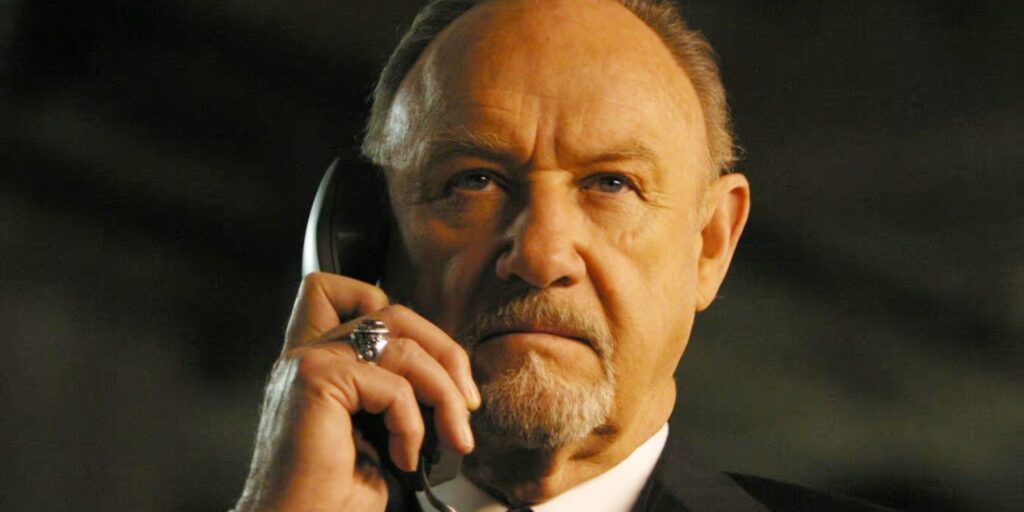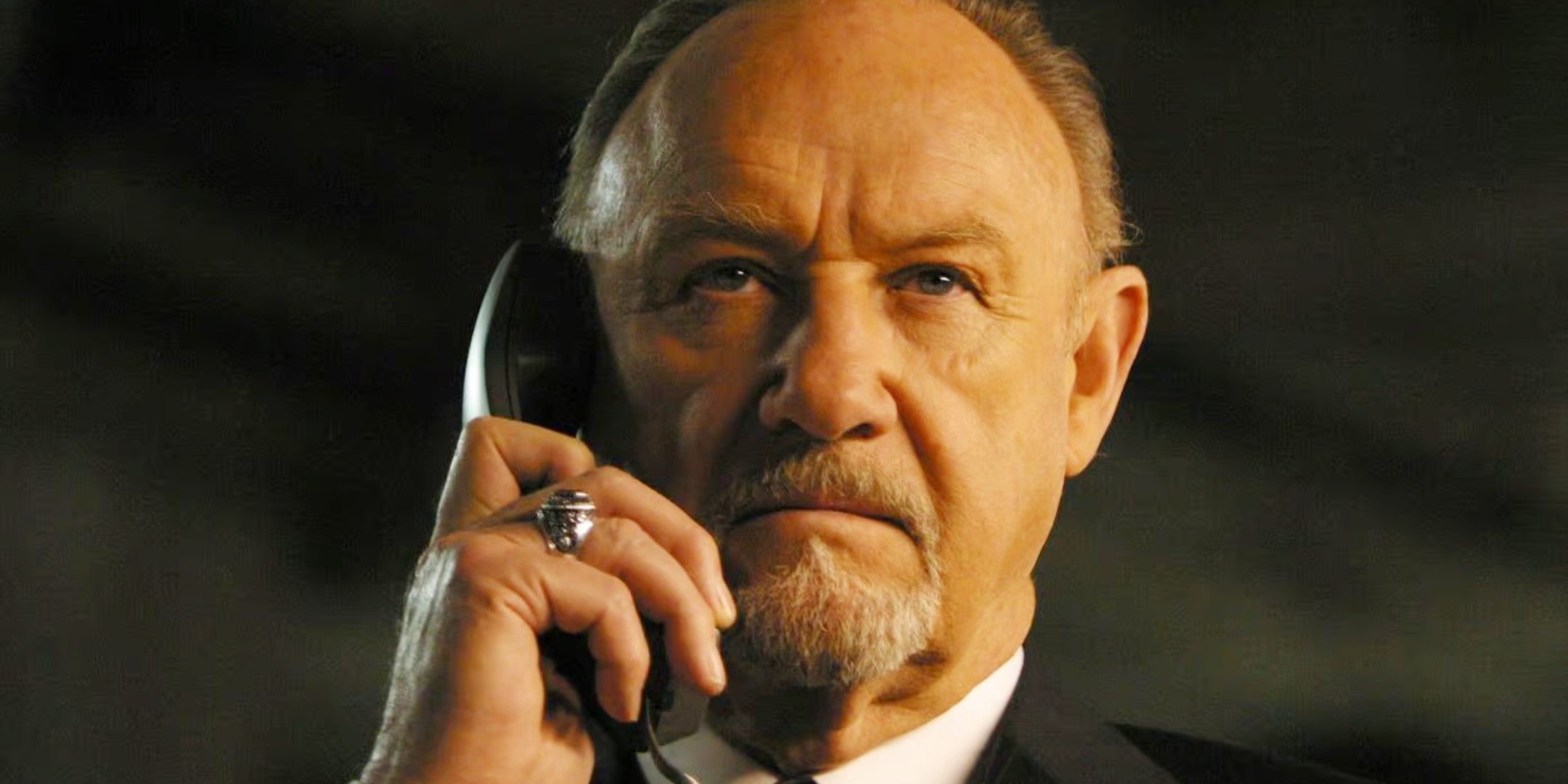
Runaway Jury: Separating Fact from Fiction in a Gripping Legal Thriller
Runaway Jury, a legal thriller released in 2003, captivated audiences with its suspenseful plot involving a high-stakes trial against a gun manufacturer. Starring John Cusack, Gene Hackman, and Dustin Hoffman, the film explores themes of jury manipulation, corporate greed, and the power of individual conscience. But how much of Runaway Jury is based on a true story? While the film is not a direct adaptation of a specific real-life event, it draws inspiration from various aspects of the American legal system and societal concerns. This article delves into the factual elements embedded within the fictional narrative of Runaway Jury, examining the realities of jury selection, the influence of special interests, and the ethical dilemmas faced by those involved in the justice system. Understanding the context of Runaway Jury allows us to appreciate the film’s commentary on the complexities of the legal process.
The Source Material: John Grisham’s Novel
Runaway Jury is based on the novel of the same name by John Grisham, a master of legal thrillers. Grisham is known for his meticulous research and his ability to weave compelling stories around the intricacies of the legal world. While the film adaptation made significant changes, the core premise of a jury being manipulated from the inside remains consistent with the novel. Grisham’s inspiration often comes from his own experiences as a lawyer and observations of the legal landscape. He is particularly interested in exploring themes of corporate accountability, the power of money in the courtroom, and the potential for corruption within the system.
The novel, however, originally featured a lawsuit against a tobacco company. The film adaptation changed the defendant to a gun manufacturer following the Columbine High School massacre, which made the story more timely and relevant to contemporary concerns about gun control. This shift in focus highlights the adaptation’s desire to engage with pressing social issues. The core plot still revolves around the manipulation of a jury, but the specific context and motivations are significantly altered.
The Reality of Jury Selection and Manipulation
One of the most compelling aspects of Runaway Jury is its depiction of jury selection, also known as voir dire. The film portrays a sophisticated operation in which Rankin Fitch (Gene Hackman) and his team meticulously research potential jurors, looking for vulnerabilities and biases that can be exploited. While the film exaggerates the extent to which this is possible, the reality is that jury selection is a crucial part of any trial. Lawyers on both sides attempt to identify jurors who are likely to be sympathetic to their case and to exclude those who are not.
The process involves asking potential jurors questions about their backgrounds, beliefs, and experiences. Lawyers may also conduct background checks and use social media to gather information. The goal is to create a jury that is favorable to their client’s position. While the overt manipulation depicted in Runaway Jury is rare, the subtle biases and prejudices of jurors can have a significant impact on the outcome of a trial. This is why jury selection is often a lengthy and contentious process.
The ethical implications of jury selection are also explored in the film. Fitch’s methods are clearly unethical and potentially illegal, as he resorts to intimidation, bribery, and surveillance to control the jury. However, even in the absence of such extreme tactics, the process of jury selection raises questions about fairness and impartiality. Can a truly unbiased jury be assembled, or are all jurors inevitably influenced by their own personal experiences and beliefs? The film challenges viewers to consider these questions and to reflect on the role of the jury in the justice system.
Is Jury Tampering a Real Concern?
While the level of jury tampering shown in Runaway Jury is extreme, the issue itself is a real concern. Jury tampering is a federal crime, and it can take many forms, including bribery, threats, and intimidation. In some cases, attempts to influence jurors may be subtle, such as planting false information or spreading rumors. In other cases, the tactics may be more overt, such as directly contacting jurors and offering them money or threatening them with violence.
The consequences of jury tampering can be severe, not only for the individuals involved but also for the integrity of the justice system. If a jury is compromised, the outcome of the trial may be unfair, and the public’s confidence in the legal system may be eroded. For this reason, law enforcement agencies take allegations of jury tampering very seriously and will investigate them thoroughly. The film Runaway Jury, while fictional, raises awareness of the potential for jury tampering and the importance of protecting the integrity of the jury system.
The Influence of Special Interests and Corporate Power
Another theme explored in Runaway Jury is the influence of special interests and corporate power in the legal system. The film depicts a powerful gun manufacturer that is willing to go to any lengths to avoid being held liable for the harm caused by its products. The company hires Rankin Fitch, a ruthless jury consultant, to manipulate the jury and ensure a favorable verdict. This portrayal reflects a broader concern about the ability of wealthy corporations to use their resources to influence the outcome of legal proceedings.
In reality, corporations often have a significant advantage in legal battles due to their financial resources. They can afford to hire the best lawyers, conduct extensive research, and mount sophisticated public relations campaigns. This can make it difficult for individuals or smaller companies to compete on a level playing field. The film Runaway Jury highlights this imbalance of power and raises questions about the fairness of the legal system.
The issue of product liability, which is central to the plot of Runaway Jury, is also a real concern. Companies that manufacture and sell products have a responsibility to ensure that those products are safe for consumers. If a product is defective or dangerous, the company may be held liable for any harm that it causes. However, proving product liability can be difficult, especially when dealing with large corporations that have the resources to defend themselves. [See also: Landmark Product Liability Cases] The film illustrates the challenges faced by plaintiffs in these types of cases and the importance of holding corporations accountable for their actions. The ethical dilemmas faced by jurors in these cases are significant, as they must weigh the evidence and decide whether the company is responsible for the harm caused.
Ethical Dilemmas and Moral Choices
Runaway Jury presents viewers with a series of ethical dilemmas and moral choices. The characters in the film are forced to confront difficult questions about right and wrong, justice and fairness. Nicholas Easter (John Cusack), the juror who is secretly manipulating the jury, must decide whether to use his power for personal gain or to fight for what he believes is right. Rankin Fitch (Gene Hackman) must decide how far he is willing to go to win the case for his client. And the other jurors must grapple with their own biases and prejudices as they try to reach a fair verdict.
The film encourages viewers to consider their own values and beliefs and to reflect on the importance of ethical decision-making. In a world where money and power often seem to trump morality, Runaway Jury reminds us that individuals still have the power to make a difference. By standing up for what is right, even in the face of adversity, we can help to create a more just and equitable society. The film’s exploration of these themes is what makes it so compelling and thought-provoking.
The Power of the Individual
Ultimately, Runaway Jury is a story about the power of the individual to challenge the system. Nicholas Easter, despite his initial motivations, ultimately uses his influence to expose the corruption and manipulation that is taking place. He demonstrates that even one person can make a difference, and that it is possible to fight for justice even when the odds are stacked against you. This message is particularly relevant in today’s world, where many people feel powerless in the face of large corporations and government institutions.
The film also highlights the importance of critical thinking and independent judgment. The jurors in Runaway Jury are constantly bombarded with information and propaganda from both sides. It is up to them to sift through the noise and make their own informed decisions. This requires a willingness to question authority, to challenge assumptions, and to consider all sides of the issue. Runaway Jury reminds us that we all have a responsibility to be informed and engaged citizens, and that we must never blindly accept what we are told.
Conclusion: Fact, Fiction, and the Pursuit of Justice
While Runaway Jury is a work of fiction, it is grounded in certain realities of the American legal system. The film explores the potential for jury manipulation, the influence of special interests, and the ethical dilemmas faced by those involved in the justice system. While the specific events depicted in the film are not based on a single true story, they are inspired by various aspects of the legal world and societal concerns. Runaway Jury serves as a reminder of the importance of protecting the integrity of the jury system and holding those who would undermine it accountable.
The film’s enduring popularity is a testament to its ability to resonate with audiences on a number of levels. It is a suspenseful thriller that keeps viewers on the edge of their seats, but it is also a thought-provoking commentary on the complexities of the legal process and the challenges of achieving justice. Whether you are a fan of legal thrillers or simply interested in the workings of the justice system, Runaway Jury is a film that is sure to entertain and inform. The runaway jury concept, while dramatized, reflects real-world concerns about fairness and impartiality. The Runaway Jury shows how the legal system can be manipulated, and the importance of protecting the integrity of the jury system. The Runaway Jury is not a true story in the literal sense, but rather a fictionalized exploration of real-world issues. Many viewers wonder if Runaway Jury is based on a true story, and while the answer is no, the film does draw inspiration from real-life legal scenarios. The themes explored in Runaway Jury, such as jury tampering and corporate influence, are relevant to ongoing debates about the fairness of the legal system. Overall, Runaway Jury remains a captivating and relevant film that continues to spark discussion about the pursuit of justice.

